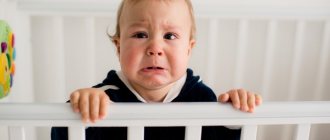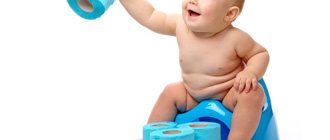Why do so few specialists work with constipation?
Psychological constipation in a child has been a hot topic in the last few years among psychologists.
But not from the point of view of the workflow, but rather from the position of whether to work with this request or not. If it works, then how. And the most pressing moment in the work of a psychologist is the result. Well, or positive feedback = result.
When working with constipation, the result is not quick, so not all specialists are ready to go this long, difficult path together with parents and the child.
Treatment
Help before diagnosis
The main method for eliminating constipation in adults, which can be used at home, is changing your diet. It is important to increase the amount of plant fiber, which helps increase the volume of feces and stimulates the urge to defecate. It is recommended to take fiber in the form of wheat bran (3-4 tablespoons per day); whole grain bread, fresh fruits and vegetables should be added to the diet.
It is necessary to increase fluid intake to 2.5 liters per day, which helps soften the stool. To stimulate intestinal motility, you should add regular physical activity, try to empty your intestines at the same time, in the morning after breakfast. If constipation is combined with severe pain in the abdomen, fever, or blood in the stool, you should consult a doctor.
Conservative therapy
Medications prescribed for the treatment of constipation in adults are selected taking into account the clinic and the cause of defecation disorders. To quickly completely empty the intestines and prevent intoxication, cleansing or siphon enemas with hypertonic solutions are given. To reduce pain in rectal pathology, therapeutic enemas with oils and anesthetics are administered. For the treatment of constipation use:
- Laxatives
. Osmotic medications and bisacodyl rectal suppositories, which stimulate peristalsis, are recommended. The frequency of administration and dosage of medications are strictly controlled so as not to aggravate the patient’s condition. The course of treatment is no more than 2-3 months. - Enterosorbents
. The drugs reduce gas formation in the intestines, reduce the manifestations of flatulence and pain in the abdomen. To improve digestion and eliminate the cause of constipation, take probiotics that improve colon microflora. - Antibiotics
. For colitis and other inflammatory processes of bacterial etiology, agents that act exclusively in the intestinal lumen are indicated. Parasites are eliminated using specific anthelmintic drugs. - Antispasmodics
. They are used to reduce pain and spasm of the rectal sphincters, which makes defecation easier in adults. For unbearable pain, they are combined with non-narcotic analgesics and physiotherapy methods. - Detoxification solutions
. To eliminate poisoning as a cause of lack of bowel movements, saline solutions are used, which are administered in large volumes, and the technique of forced diuresis. In case of metal intoxication, complexones are prescribed.
What kind of constipation?
Have you noticed that infants do not suffer from psychosomatic constipation? They experience physiological constipation. And the psychological reason for delayed bowel movements is already typical from the age of 2 years.
What could be the reason?
- experienced stress (and this includes moving, traveling, a new place);
- emotional trauma (separation from mother, hospital, etc.);
- a feeling of shame (this means that children are often scolded for soiling their pants);
- protest (difficulties of parent-child relationships);
- physical pain (fear of pain).
What is constipation
From a medical point of view, constipation is not only the retention of stool for more than two days, but also very hard stools, small stools with a feeling of incomplete evacuation, or painful bowel movements. Diagnosis is made if symptoms persist for at least three months.
“There are mentions of traveler’s constipation in specialized literature,” explains Yulia Kogrusheva, a gastroenterologist at the Rassvet clinic. “But we are not talking about an independent disease, but about an exacerbation of one of two diseases: functional constipation or irritable bowel syndrome.”
Functional constipation is said to occur when the colon does not want to contract and requires additional stimulation. It most often affects older people and young children, but it sometimes happens to people of other ages.
With irritable bowel syndrome, constipation occurs, on the contrary, due to excessive motility: the intestine spasms and does not release its contents. In this case, antispasmodics will be more effective than laxatives. Irritable bowel syndrome depends less on mechanical factors and more on psychological factors.
Let's figure out what exactly can aggravate intestinal problems while traveling and how to deal with it.
How is psychological constipation formed?
The child has had a negative experience of going to the toilet and on a psychological level he forms the connection defecation = pain (or shame, discomfort, pressure, etc....).
So, what can cause a baby’s reluctance to go to the toilet:
- forced potty training;
- punishment for soiled panties;
- pain during bowel movements due to physiological constipation;
- excessive parental care may also be a reason;
- protest in difficult family relationships;
- ridicule from other children in a childcare center or from a brother or sister at home;
- any unpleasant memories associated with going to the toilet;
- discomfort when visiting public toilets
- and a psychological moment... when parents force a child to share toys or something else with other children and the baby himself has no control over this, then constipation occurs, as the only thing that the baby himself can control... whether to give it or not.
Moreover, the symptoms of constipation are often the same as the symptoms of physiological constipation; parents do not understand the nature of constipation and continue to make mistakes that initially led to psychological constipation.
Mechanical causes of constipation
Intestinal motility, that is, its ability to move the remains of digested food to the exit, depends on many factors: some enhance this ability, others inhibit it. Here is a list of the most typical holiday mistakes that lead to decreased intestinal motility and cause exacerbation of functional constipation.
Dehydration
If the body does not have enough fluid, the intestines squeeze out and absorb all the water from the food bolus. What remains becomes so dry and hard that it is difficult to move towards the exit.
When traveling, dehydration is often caused by the dry air on planes and the heat outside, alcoholic drinks and, of course, diuretics (which are often abused to “get in shape for vacation”). According to research, large amounts of coffee also exacerbate functional constipation.
What to do? Drink more water (especially on the plane), less coffee and alcohol.
Poor nutrition
Products with a large amount of fiber activate peristalsis, while refined ones (for example, baked goods made from white flour), on the contrary, slow them down. The fact is that for normal functioning, the intestines need to feel the mass and volume that needs to be moved towards the exit - and it is fiber that is responsible for this. If the bulk of what you eat is absorbed into the blood (this happens, for example, with simple carbohydrates), then the intestines begin to get lazy: it simply has nothing to do.
What to do? Ideally, eat more vegetables and fruits. If this is not an option, so-called volume-giving laxatives will solve the problem. But if you're used to a particular type of laxative and it was effective at home, you shouldn't change it while traveling (although you may need to increase the dose).
Lack of physical activity
The more we move, the more active the intestines are, and vice versa. Accordingly, if you lie on the beach all day, your intestines, like the rest of your body, are also inactive.
What to do? Walk, dance, jump on a trampoline, don’t ignore beach activities - and, of course, swim. This is not only physical activity, but also a massage of the abdomen (since the water presses on the abdominal wall). An ideal combination that can awaken a dormant intestine.
Who is at risk?
- children who stubbornly refuse to sit on the potty;
- kids who hide from their parents to go to the toilet;
- children who are afraid of the toilet;
- refusal to defecate in kindergarten;
- children who have difficulty processing sensory information (this includes fear of getting dirty, fear of touching different textures, etc.).
- children who poop only in a diaper, even if it needs to be worn specially for this.
How is psychosomatic constipation treated?
Problems with bowel movements may disappear after just a few months of constant work on your emotions. For example, with the emotion of fear.
We emphasize that the symptoms are not based on the situations themselves, for example moving. And not accepting them is emotional. Unpreparedness for change, conservatism, painful exit from the existing comfort zone.
Therefore, if you have a move coming up, then you can do without intestinal disturbances by working with your fears.
If you do not deal with psychological reasons, then doctors will offer treatment with special laxative powders and suppositories. This will be exclusively a fight against consequences, and not against causes. And they, as you understand, lie in the internal state.
By unraveling this tangle, the body will respond with improvement. This is a fact proven by many (including our clients).
Of course, diet, the desire to train the intestines to work at the same time - all this will contribute to recovery. Diet, exercise several times during the working day and avoidance of an overly sedentary lifestyle will also help.
What's the hardest thing about treating constipation?
- take responsibility (because with fear of uncertainty, there is a constant desire to share this responsibility with someone, or even transfer it to someone else),
- accept yourself (we wrote a special article about how to learn to accept yourself, be sure to read it),
- allow even a negative outcome of future situations (this will reduce anxiety),
- take inventory of your beliefs (what holds you back, what locks you in, what doesn’t allow you to move forward and weighs you down),
- get out of the situation of life in the past, where “everything is simple and familiar” and accept the need for new achievements.
All these fears can be sorted out into each person’s mind. In order for the psychosomatics of constipation to go away faster, it will be easier to seek help from an experienced psychologist.
The symptom must be minimized because it affects the accumulation of toxic substances in the body. Sometimes, with irritable bowel syndrome, it alternates with diarrhea. The organ is working restlessly. This can also be fixed.
What recommendations are there?
- The most important thing is not to show your child that you are upset about this problem! Children pick up on the emotional background of their parents very well and feel anxious when they see their mother’s worried face. We remain calm and create a sense of security in the baby.
- If the baby does not accept the potty, you can try to buy a new potty together so that the baby can participate in the choice.
- If a child has difficulty visiting the toilet in kindergarten, it is imperative to warn teachers about the problem. The teacher, knowing about the child’s problem, will help him get some privacy to go to the toilet.
- Children 6-8 years old can be told about the structure of the human body and the excretory system. But just don’t be scared by the dire consequences! And explain that when waste is retained, harmful substances can begin to be released and disrupt the functioning of other organs.
- From 4-5 years of age, therapeutic fairy tales work well. You can use ready-made fairy tales from the Internet, or together with a psychologist, create your own fairy tale, where the main character is the same boy or girl as our baby and always with a good ending!
- With children 2-3 years old, you can already use role-playing games with toys and using toy toilet items that are very similar to real ones. Thus, we project the situation onto dolls, bunnies, etc.
- There is no need to disturb the child once again and often ask whether he wants to go to the toilet or not. We are tactful. - in the game, make all kinds of poop sausages with the kids, let them be of different colors, make them striped, funny, invent, fantasize, show the kid that pooping is not necessarily a complicated process. Let the bunny poop a funny sausage on the toilet. And the baby will see that you, too, are not tense and do not expect a specific result from him.
What are the causes of psychosomatic constipation?
The condition is usually based on emotions such as fear and anxiety.
We are talking about the fear of changing something in your life and the reluctance to change (leave everything as it is). Such researchers of psychological causes as Dr. Sinelnikov and Louise Hay agree on the same point of view.
It is fear and anxiety that cause the psychosomatics of constipation in both adults and children.
From psychological practice, we drew attention to the most common internal states of sick people. Anxiety is usually caused by 2 conditions :
- painful choice from 2 options
- and not knowing what to do.
If a person is tormented by a choice (he doesn’t know whether to take this job or another; open a business or not; get a divorce or stay) - expect a gut reaction soon!
People who are in search of themselves also suffer from misunderstanding. Constant analysis and questions “what to do,” to which there are no answers for a long time. Suspense - all of this has a big impact.
As for infants, here, first of all, it is necessary to exclude organic causes and the mother’s consumption of foods that can provoke such a disorder. Secondly, deal with your emotions. Because the child’s psyche remains connected to the parents’ psyche for a long time.
Children subtly react not only to the emotions of their mother (who often has fears about changes in life, a completely new role, the situation in the family), but also to the relationship between mom and dad.
Diagnostics
At the appointment, the doctor conducts an examination, clarifies the complaints and finds out the mechanism of development of constipation - spastic or atonic. A diagnosis of a functional disorder is made when no organic (structural) cause is found after a thorough examination. If the cause of stool retention is a specific disease, observation by specialized specialists is necessary1.
To accurately determine the cause of stool retention and find out whether it is related to spasm, the doctor may prescribe a number of tests1:
- X-ray;
- colonoscopy;
- electromyography;
- anorectal manometry;
- microbiological examination of stool.
If necessary, other parts of the digestive tract are also subject to examination1.
to come back to the beginning
Stages
There are three stages of constipation9:
- Compensation. Stool retention for 2-3 days, the urge to defecate is not disturbed, there is no pain or bloating. Bowel regularity can be restored by adjusting your diet.
- Subcompensation . Feces are not excreted for 3 days to a week, and abdominal pain and flatulence may appear. Bowel movements occur only when taking laxatives.
- Decompensation . There is no urge to defecate, fecal retention lasts more than a week. Pain and bloating are a concern, signs of intoxication appear. Fecal blockage can only be removed with an enema.
In general, with chronic stool retention of a functional nature, the prognosis is relatively favorable. But if the provoking factor is not eliminated and treatment is not started, enlargement of the colon, development of anal fissures, hemorrhoids and fecal incontinence are possible14.
to come back to the beginning
Constipation: psychosomatics
The human body is designed wisely: everything that is used up and becomes waste is eliminated in a timely manner. To make room for new food to come in, and to prevent waste from harming the body. And the function of the colon is to remove from the human body what it no longer needs.
On a metaphysical level, the colon, by analogy, is also responsible for the release of waste, but of a slightly different nature. In this case, waste is all the negative and outdated thoughts and emotions of a person. Here, too, mental and emotional waste must be released in time to make room for the arrival of new ideas and feelings, and so that outdated thoughts and emotions do not poison a person’s inner world.
However, often a person, for some reason, does not want to let go of his beliefs and experiences, even if they are no longer relevant for him. So they accumulate, occupying his entire inner world. A congestion arises from old psycho-emotional garbage (interfering with the normal movement of ideas and feelings), which in physics manifests itself as psychogenic constipation.
Also, psychological constipation can occur as a reaction of the body to severe stress. Thus, the release of stress hormones disrupts the work of the autonomic nervous system in regulating the excretory system: the intestinal muscles become more toned and cause constipation.











